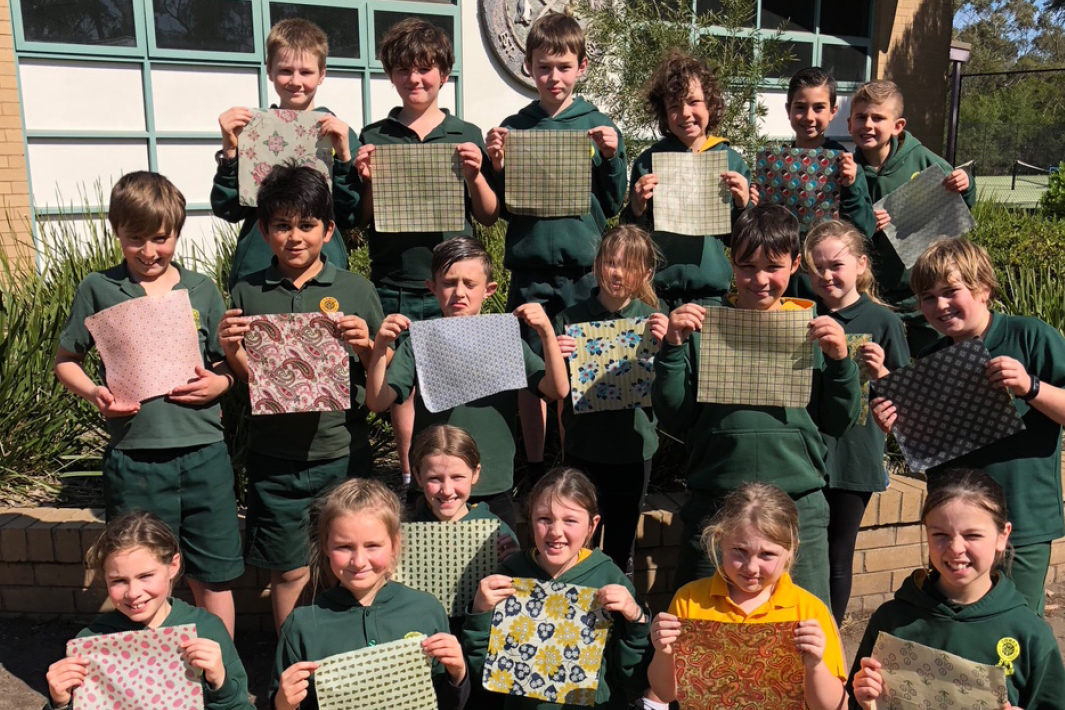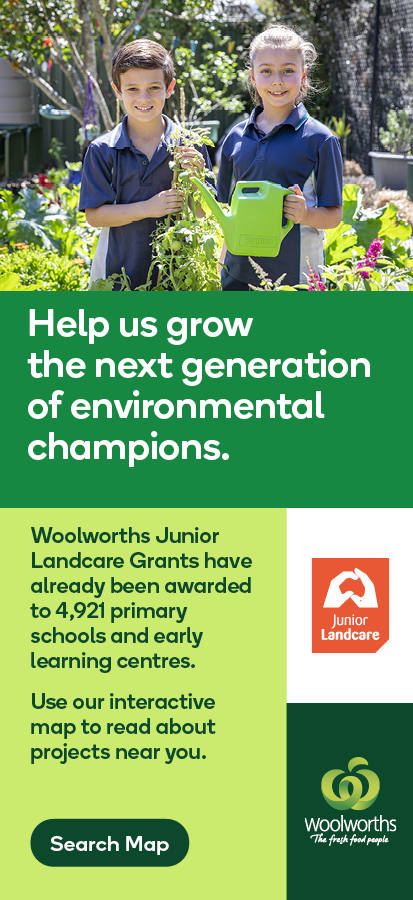CASE STUDY

Age Groups: 7-13
Grant Name:
School: Cowes Primary School
Grant Sponsor:
As a result of participating in their Bee Positive project, 165 students at Cowes Primary School in Victoria are proud to proclaim their school bee friendly. They now have a great understanding of the needs of our native bees, and many have taken this knowledge home to their own gardens.
Bee Positive was a trio of bee-related projects the school implemented in 2018 with funding from a Momentum Energy Powerful Youth Project grant in partnership with Junior Landcare. The overarching aim of this initiative was to normalise and support the presence of bees in built environments as well as in the student’s own backyards.
For the first part of the project, bee friendly meadows were established at two sites within the school. Students undertook research to select the plants that best support bee populations year round.
The second project was the construction of two bee hotels. Each grade level had an external frame provided and students collected suitable filling material as identified by research. One student said, “We need a bee hotel because our native bees are solitary which means they live alone, we have planted flowering plants for them to eat and have water in sand for them to drink from so they don’t drown.”
The third and most popular activity, was for every Year 3 and 4 student to produce a beeswax wrap. They took their wraps home after learning how to use and care for them. Over 30 percent of students are using the wraps to replace plastic wraps and mini bags in their lunchboxes and by doing this, are greatly reducing classroom rubbish.
Educationally, students had many practical opportunities to measure, divide, practice fractions and estimate. Plant and seed labels provided a wealth of tasks from interpreting information, estimating volume and assessing growing conditions.
The project activities also sparked an interest in many students in maintaining and developing all the school’s green spaces. Students have a clear understanding of how the built environment and their individual and community choices of how to live can affect biodiversity and wish to make positive changes.
Bella, one of the students who participated in the project said, “You should not ‘bee’ scared when you see bees, we need them to help pollinate some of our favourite foods like strawberries, tomatoes and mangos. If we don’t look after bees they will die”.
 Teachers & Educators
Teachers & Educators Youth or Community Groups
Youth or Community Groups